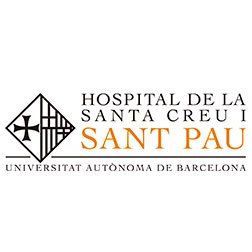30/03/2021 - 09:46
March 30 is the International Domestic Workers Day. In Barcelona, two out of every five people take care of another person in their family network.
March 30 is the International Domestic Workers Day. According to a report by Comisiones Obreras (CCOO), there are more than 91,000 domestic workers in Catalonia. This year, the exceptional circumstances of the Covid-19 pandemic have shown the vital importance of care and the essential network that makes it possible: people who care for other people.
Domestic service constitutes a markedly feminized and ethnicized field and, therefore, more vulnerable. Domestic workers take care of day-to-day care, an essential task for sustaining life and historically associated with women. Their work is essential for the functioning of an economic, labor and social system that, however, makes them invisible and precarious.
During these months, the Barcelona Care Center has deployed specific actions to support domestic and care workers and has established itself as a meeting point and relationship for all the protagonists of care that collects all the information related to the world of city care.
Feminization of care in Barcelona
In Barcelona, two out of every five people take care of another person in their family network and there are more than 55,000 people registered in the “work from home” scheme to Social Security. This care market leads us to talk about the employment conditions of the women who support this sector, marked by low wages, precariousness and a high rate of informality.
In Catalonia, homework accounts for 23.8% of employed foreign women and more than 70% of the households that hire domestic service in Catalonia are in Barcelona. However, from the second phase of the pandemic, this percentage has decreased, both in Barcelona and in the rest of Catalonia.
Furthermore, it is estimated that around a third of these workers are in an irregular situation. Migrant workers stand out, especially those who do not have a work or residence permit. The situation of this group during the state of emergency has been seriously aggravated due to the health crisis of Covid-19.
The fact that they do not have a work contract has added difficulties to negotiating working conditions and abuse, among others.
Barcelona: caring city
The Barcelona Care Center works to support domestic and care workers, meet the needs of caregivers and receiver of care and professionals in the sector. The center has seven professionals who work in a network with people and organizations and who offered face-to-face, telephone and telematic assistance.
Located in Viladomat street no. 27, it is a space to inform and advise the relatives of cared for people and the general public about the existing resources around care, such as specific procedures, emotional support and other specific needs of this reality, such as, for example, hiring, the recognition of the degree of dependency, the training of caregivers or labor rights linked to the care sector.
The service that we offer from Barcelona Care Center is provide training, advice and support in the management of procedures to build fairer relationships between families and workers”, explains in this video (link) Pedro Moreno, coordinator of the legal service.
- A worker talks to a user of “Barcelona Care Centre””







